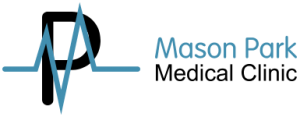Hypertension, commonly known as high blood pressure, is a pervasive health issue that affects millions of people worldwide.
Preventive care is very important in managing and preventing hypertension, reducing the risk of severe health complications. Understanding hypertension and implementing regular blood pressure monitoring can help maintain a healthy heart and overall well-being.
Read here to learn more about hypertension, its causes, preventive measures, and the significance of blood pressure monitoring.
What is Hypertension?
Hypertension is a chronic medical condition characterized by consistently high blood pressure levels. Blood pressure is the force exerted by circulating blood against the walls of the body’s arteries.
It is measured in millimeters of mercury (mmHg) and recorded as two numbers: systolic pressure (the pressure when the heart beats) over diastolic pressure (the pressure when the heart is at rest between beats). Normal blood pressure is typically around 120/80 mmHg.
When blood pressure remains elevated over time, it can damage the arteries and increase the risk of heart disease, stroke, kidney problems, and other serious health conditions. Hypertension is often referred to as the silent killer because it usually has no noticeable symptoms until significant damage has occurred.
Causes Leading to Hypertension
Hypertension can develop due to a variety of factors. Understanding these causes is essential for effective prevention and management.
- Genetics. Family history plays a significant role in the likelihood of developing hypertension. If close relatives have high blood pressure, the risk increases due to inherited genetic factors.
- Age. Blood pressure tends to rise with age. As people get older, their blood vessels lose elasticity, which can lead to increased pressure on the arterial walls.
- Diet. Consuming a diet high in sodium (salt), saturated fats, and cholesterol can contribute to hypertension. Sodium causes the body to retain fluid, increasing blood pressure. Foods high in unhealthy fats can lead to the buildup of plaque in the arteries, further exacerbating the problem.
- Physical Inactivity. A sedentary lifestyle contributes to weight gain and higher blood pressure. Regular physical activity helps maintain a healthy weight and reduces the strain on the heart and blood vessels.
- Obesity. Excess body weight requires the heart to work harder to pump blood, leading to increased pressure on the arteries. Obesity is closely linked to other risk factors, such as poor diet and inactivity.
- Alcohol and Tobacco Use. Excessive alcohol consumption can raise blood pressure, and smoking causes an immediate but temporary increase in blood pressure. Over time, the chemicals in tobacco can damage the lining of the artery walls, leading to hypertension.
- Stress. Chronic stress can contribute to temporary spikes in blood pressure. Stress-related habits, such as eating unhealthy foods, smoking, or drinking alcohol, can also lead to long-term high blood pressure.
- Chronic Conditions. Conditions like diabetes, kidney disease, and sleep apnea are linked to hypertension. Managing these underlying conditions is crucial for controlling blood pressure.
- Medications and Supplements. Certain prescription medications, over-the-counter drugs, and supplements can elevate blood pressure. These include decongestants, pain relievers, and some herbal supplements.
- Hormonal Imbalances. Conditions affecting hormone levels, such as thyroid problems, can influence blood pressure. Hormones play a crucial role in regulating blood pressure, and imbalances can lead to hypertension.
Understanding these causes helps in adopting a holistic approach to preventing and managing hypertension. By addressing these risk factors, individuals can significantly reduce their chances of developing high blood pressure and its associated health complications.
What is Blood Pressure Monitoring?
Blood pressure monitoring involves regularly checking your blood pressure levels to make sure they remain within a healthy range. Monitoring can be done at home using a blood pressure monitor or by a healthcare professional during regular check-ups.
Regular monitoring helps in:
Early Detection
Identifying high blood pressure early is crucial because it allows for prompt intervention and treatment. Early detection can prevent severe complications such as heart disease, stroke, and kidney failure. Regular monitoring helps catch hypertension before it leads to more serious health issues, enabling individuals to take action before the condition worsens.
Tracking Progress
Monitoring blood pressure regularly is essential for tracking the effectiveness of lifestyle changes or medications. This consistent tracking helps individuals see if their efforts to manage their blood pressure, such as diet modifications or increased physical activity, are working. It provides a clear picture of progress over time, highlighting areas that may need additional attention.
Adjusting Treatment
Regular blood pressure readings provide valuable data for healthcare providers. This information allows them to adjust treatment plans as needed. If medications are not effectively controlling blood pressure, adjustments can be made to dosages or types of medication. This personalized approach ensures that treatment is optimized for the individual’s specific needs.
Motivation
Seeing improvements in blood pressure readings can be a significant motivator for individuals. Positive changes can encourage people to continue with healthy habits, such as maintaining a balanced diet, exercising regularly, and adhering to medication regimens. This motivation can lead to sustained lifestyle changes that benefit overall health and well-being.

Different Ways to Monitor Blood Pressure
There are various methods to monitor blood pressure:
Home Blood Pressure Monitors
Home blood pressure monitors are user-friendly devices that allow individuals to measure their blood pressure conveniently at home. These monitors are typically digital, making them easy to use with quick, clear readings displayed on a screen.
Regular home-monitoring helps individuals keep track of their blood pressure levels, providing valuable information that can be shared with healthcare providers during consultations.
This method empowers individuals to manage their health proactively by spotting any irregularities early.
Remote Monitoring with iHealth
At Mason Park Medical Clinic, we specialize in personalized care for managing long-term disorders. A key part of our comprehensive approach is managing chronic conditions through iHealth, a remote monitoring program for regular blood pressure testing.
This program enables patients to monitor their blood pressure from the comfort of their homes while staying connected with their healthcare providers. The iHealth devices sync with a mobile app, providing real-time data to both the patient and their provider.
This continuous monitoring helps in making timely adjustments to treatment plans and ensures better management of hypertension.
Regardless of the method, it is essential to consult an expert provider to guarantee accurate readings and proper monitoring techniques.
Ambulatory Blood Pressure Monitoring (ABPM)
ABPM involves wearing a portable device that measures blood pressure at regular intervals over 24 hours. This method provides a comprehensive view of blood pressure fluctuations throughout the day and night, capturing variations that might be missed with single measurements.
ABPM is particularly useful for diagnosing white-coat hypertension (elevated readings in a clinical setting but not elsewhere) and monitoring the effectiveness of hypertension treatments. The detailed data gathered helps healthcare providers make more informed decisions about treatment plans.
Office Blood Pressure Measurement
This is a traditional method where a healthcare professional measures an individual’s blood pressure during routine visits. This method guarantees accuracy and provides an opportunity for healthcare providers to assess the patient’s overall health and discuss any concerns.
While this method is reliable, it might not capture the full picture of an individual’s blood pressure variations throughout the day. Combining office measurements with home monitoring or ABPM can give a more comprehensive understanding of a patient’s blood pressure profile.
Regardless of the method, it is essential to consult an expert provider to guarantee accurate readings and proper monitoring techniques.
Best Practices to Avoid Hypertension
Adopting healthy lifestyle practices can significantly reduce the risk of developing hypertension. Here are some best practices:
- Healthy Diet. Consuming a balanced diet rich in fruits, vegetables, whole grains, and lean proteins while limiting salt, sugar, and saturated fats can help maintain healthy blood pressure.
- Regular Exercise. Engaging in physical activity for at least 30 minutes most days of the week can help lower blood pressure and improve heart health.
- Maintain a Healthy Weight. Achieving and maintaining a healthy weight reduces the strain on the heart and lowers blood pressure.
- Limit Alcohol and Avoid Tobacco. Reducing alcohol intake and quitting smoking can significantly lower blood pressure and prevent other cardiovascular disease.
- Manage Stress. Practicing stress-reducing techniques like meditation, yoga, and deep breathing can help keep blood pressure in check.
- Regular Monitoring. Regularly checking blood pressure at home and during medical visits helps detect any changes early and take necessary actions.
- Medication Adherence. If prescribed medications, ensure to take them as directed by a healthcare provider.

Preventing hypertension starts with awareness and proactive measures. At Mason Park Medical Clinic in Katy, TX, we offer comprehensive care to help you manage and prevent high blood pressure. Our expert providers are here to guide you through regular monitoring and personalized treatment plans.
Don’t wait for symptoms to appear that can make you hypertensive—schedule your appointment today and take control of your health with our dedicated support!




